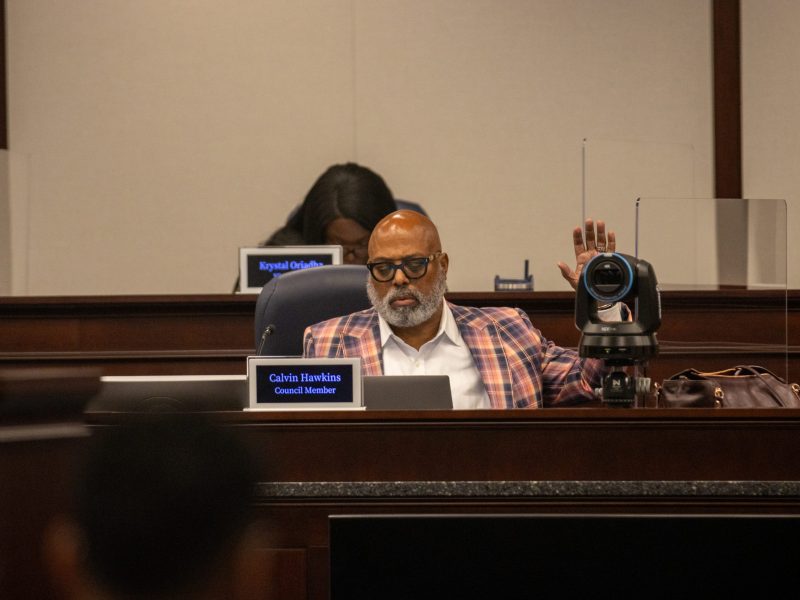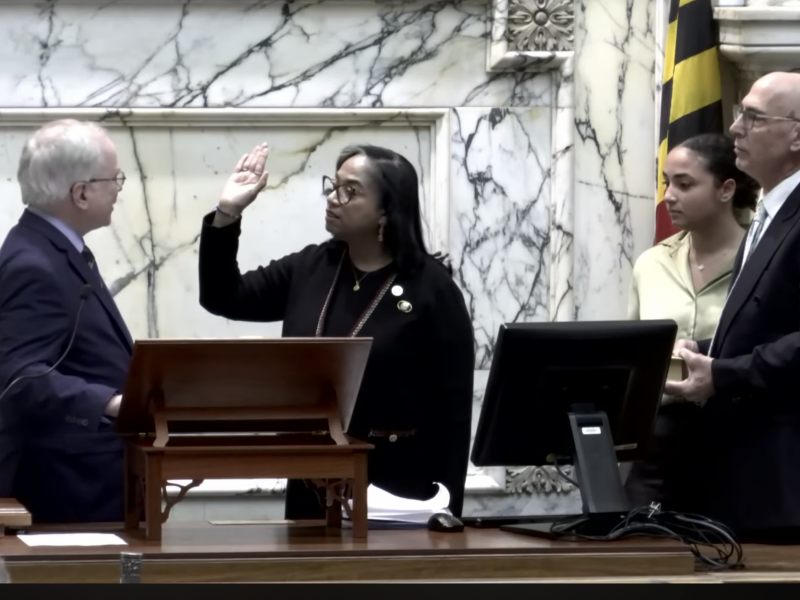By Tommy Tucker
For The Diamondback
The University of Maryland’s community engagement office held Good Neighbor Day Saturday throughout College Park and neighboring areas.
Good Neighbor Day consisted of 40 service projects, including a food drive, planting pollinator gardens, packing meals and a Transcribe-a-thon. The projects were organized in partnership with the city of College Park and the Maryland-National Capital Park and Planning Commission.
“This year, we got 800 volunteers and more [walkups],” Antonya da Silva, the office’s media and digital communications specialist, said. “All of these projects are finding all different kinds of people, and we are definitely not short of volunteers.”
One of the Good Neighbor Day projects consisted of mulching, planting pollinator plants and installing bee hotels outside of American Legion Post 217 on Route 1. The American Legion is a nonprofit providing assistance and guidance for veterans, military personnel and their families.
“This is really important to us because it is Veterans Day weekend … if we’re going to be doing a service project on a holiday weekend, it should especially impact the veterans,” da Silva said. “Veterans should have a nice, safe, beautiful place that they can reflect, go to, walk around and just feel safe.”
[UMD will still prohibit cannabis on campus after statewide legalization]
The project had student volunteers from this university’s ROTC program, along with veterans and students from local high schools. Aubrey Hoover, a senior bioengineering student with the Army ROTC program, thought the project was important both to the area and students.
“We get to reach out and create a bond with the College Park community and UMD students,” she said. “Giving back to our community and just making sure that we’re not just coming here and being students is really awesome.”
Good Neighbor Day also involved a food drive held in the College Park IKEA parking lot, run by Terps Against Hunger. They packaged about 17,000 meals, according to Terps Against Hunger co-President Emily Weis.
Each meal bag contained six servings of food and cost only 20 cents to produce.
“We’re trying to spread awareness of, ‘If you need help, you can get help,’” Weis said.
In Prince George’s County, 48 percent of all households experienced uncertainty about where a next meal would come in 2021, according to a Capital Area Food Bank report .
An exhibit called Outbreak: Epidemics in a Connected World, in partnership with the Smithsonian National Museum of Natural History, explored how viruses connect the world and how epidemiologists, veterinarians and public health workers identify and respond to infectious diseases.
[UMD professor’s research reveals youth favor protesting over voting]
The exhibit also hosted mental health workshops, focussing on identifying when someone should seek help regarding their mental health.
“Mental health is something that has been brushed under the carpet for way too long, and we’re seeing a lot of people that need help,” Katie Little, the lead community engagement specialist for the university’s community engagement office, said.
At the Transcribe-a-thon — held at Riversdale House Museum — volunteers worked on transcribing more than 7,000 documents from a descendant of Charles Benedict Calvert, the founder of this university.
“It’s really helped us answer a lot of questions, correct a lot of incorrect history that we had and it’s opened up a lot more information in regards to the enslaved community that was here,” Jennifer Flood, the collections curator at Riversdale House Museum, said.
Volunteers took the documents, which were described as difficult to read due to the format and wording, and transcribed them online in a way that is accessible for everyday readers and people with disabilities.



